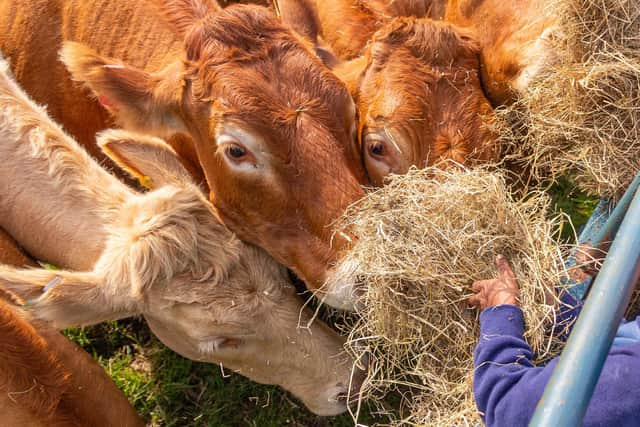Access to veterinary medicines
and live on Freeview channel 276
Before Christmas 2022, the Ulster Farmers’ Union president, CEO and I, sat in front of the EU Commission in Brussels making the case for an extension to the grace period that was due to expire on 31 December 2022, after which full compliance with EU regulations would be expected. The grace period was extended for a further three years until 31 December 2025, on the condition that the UK agree to an action plan that would move NI towards full compliance with EU regulations beginning from 1 January 2026.
On one side the EU views the grace period extension as three years to transition to full compliance to what was agreed under the Northern Ireland (NI) Protocol, and on the other side the UK government view the period as an opportunity to seek alternative arrangements – both cannot be correct at the same time.
Scale of the problem
Advertisement
Advertisement


Government and pharmaceutical companies have stated that 51% of veterinary medicines (vaccines and antibiotics) for both farmed and companion animals are affected due to product discontinuation or a reduction of the variety of pack sizes, with only larger sizes of product being available. This leads to increased cost for farmers, having to buy more product than is needed, AMR concerns and huge implications on the back of products that are to be discontinued such as botulism vaccine. Also, the UK no longer has access to the EU database for veterinary medicines which is used to provide essential information on products authorised by the EU.
The Marketing Authorisation Holder (MAH) location for national authorisations must be in the European Union and veterinary medicinal products placed on the market in NI must comply with the EU acquis for medicinal products, as stated in the ‘Commission Notice – Application of the Union’s pharmaceutical acquis in markets historically dependent on medicines supply from or through Great Britain (GB) after the end of the transition period’. Which stated the following: Medicinal products must have a valid marketing authorisation in the EU or in NI, the holder of which is in the EU or NI.
Many animal health companies store products in GB for onward supply to veterinary practices and wholesalers in NI. This form of supply chain structure has evolved over many years. It is apparent that there are real issues with a lack of availability of suitable warehousing and batch release testing facilities and capacity in NI. The Commission and European Medicines Agency have made clear that in the future, when applied fully, the NI Protocol/Windsor Framework will require that veterinary medicines moved from GB to NI must be subject to importations requirements of products entering the EU from a third country.
EU single market
Protecting the single market is essential for the EU and something which the UFU very much respects. Ensuring our access to the EU single market is vital for many sectors within the agri-food industry, mainly dairy and sheep. Hence nothing can jeopardize that trade route, however the significant concerns raised by pharmaceutical companies must be taken into consideration. The view held by some within the EU that farmers can simply go across the border to the ROI and purchase medicines is not accurate, in many cases not legal and requires special import certificates which would add an enormous bureaucratic burden on veterinary practitioners, a profession who are already in short supply.
Veterinary Medicine Working Group
Advertisement
Advertisement
As part of the Safeguarding the Union deal, the government has committed to establishing a working group on the matter. Its purpose will be to advise the UK government on solutions that will address the concerns of both pharmaceutical companies and that of agriculture. It will share understandings, review evidence, and conclude by producing a report for the UK government with clear recommendations about the way forward. The group comprises of 15 representatives from NIVA/BVA, UFU, DAERA Minister, MPs, the HOLs, pharmaceuticals, and DEFRA.
Permanent solution
We await the details of the House of Lords enquiry into veterinary medicines which the UFU amongst many others has contributed. As we are now approaching 16 months into a 36-month process and with elections in both the UK and the EU, we are likely to see more time lost in political negotiations between both parties.
This discussion must not turn into pitting NI’s access to the EU’s single market against being able to access veterinary medicines from GB, it is too important an issue for that type of debate. The UFU stand firmly against increased costs of trying to attain veterinary medicines through trade diversion and that cost being passed directly to our farmers and pet owners. As disease knows no boundaries, the implications of the current trajectory would be felt throughout the epidemiological unit of the island of Ireland and is almost too scary a thought to even contemplate. Now is the time to find a permanent solution to this long running and most critical of issues.